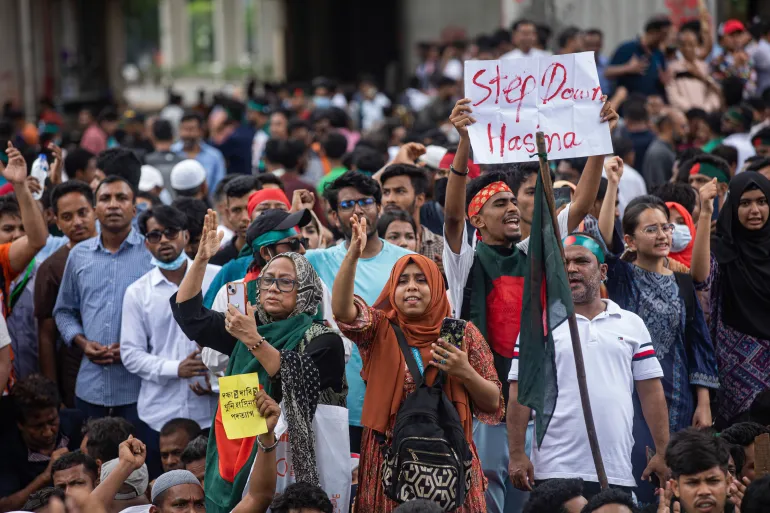Bangladesh: In a dramatic turn of events, Bangladesh Prime Minister Sheikh Hasina has stepped down after weeks of intense protests that shook the country. Her resignation, ending a 15-year tenure, comes as a response to widespread unrest that resulted from her government’s controversial job quota policy.
The protests began with student-led demonstrations against a job quota system that favored war veterans, many linked to Hasina’s Awami League party. What started as a dispute over job policies quickly turned into a nationwide outcry against perceived authoritarianism. Hasina’s dismissal of the protesters as “Razakars” further fueled anger.
The situation reached a breaking point on Sunday when clashes between protesters and security forces left over 90 people dead in one day. This prompted the authorities to impose a curfew and deploy military forces. By Monday, amid escalating violence and chaos, Hasina reportedly fled to India.
General Waker-uz-Zaman, the army chief, has announced the formation of an interim government and called for calm, promising that justice will be served for those who lost their lives during the unrest. As details about the new government emerge, there are hopes that it will lead the country back to stability and democracy.
The army’s role has been pivotal, with many seeing it as a neutral force in contrast to the previous regime. As the nation transitions, the focus will be on how well the new interim government can address the grievances of the people and restore peace.
The resignation of Sheikh Hasina marks a significant moment in Bangladesh’s history, with many hopeful for a future where democratic values and justice prevail.


















